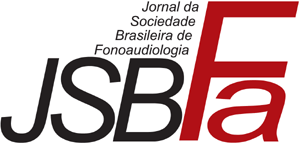PURPOSE: This study compared the temporal processing performance of children with phonological disorders submitted to formal and informal auditory training. METHODS: Fifteen subjects with phonological disorder (pure tone thresholds ≤20 dBHL from 0.50 to 4 kHz, and age between 7 years and 10 years and 11 months) were evaluated, divided into three groups: Control Group: five subjects (mean age 9.1 years) without auditory processing disorder, who passed through two evaluations of the auditory processing at intervals of six to eight weeks and without any intervention; Formal Training Group with five subjects (average 8.3 years) with auditory processing disorder submitted to eight sessions of formal training; and Informal Training Group, with five subjects (average 8.1 years) with auditory processing disorder submitted to eight sessions of informal training. RESULTS: After eight sessions the formal training group showed an improvement of 8% and the informal training group of 22.5% in comparison with the pitch pattern sequence test. For the duration pattern sequence test, the average of the formal training group improved by 12.9% and the informal training group by 18.7%. There was no statistical difference between the means obtained by both groups after intervention, neither in the pitch pattern nor in the duration pattern sequence test. CONCLUSION: Although the results did not present significant differences, this pilot study suggests that both formal and informal trainings provide improvement in the temporal processing abilities of children with phonological and auditory processing disorders.
Hearing tests; Auditory perception; Hearing; Hearing disorders/rehabilitation; Articulation disorders; Neuronal plasticity; Child




